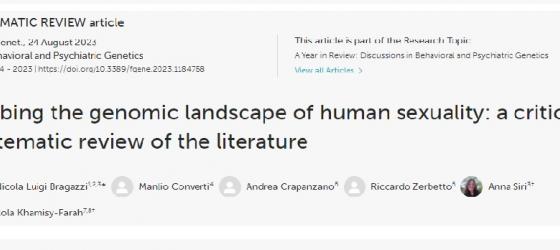The scientific study, which will be succeeded by four subsequent chapters focusing on epigenetics, neuroscience/neuroimaging, systems biology, and evolutionary anthropology, illuminates that despite the mounting evidence suggesting the innateness of sexual orientation, the direct influence of genes is not the sole determinative factor. Employing cutting-edge technologies, such as GWAS (genome-wide association studies), recent research has unveiled a mere 8-24% correlation between genetic factors and sexual orientation, encompassing all variants of sexual orientation. While this constitutes a foundational discovery, it falls short of being definitive. Notably, it's imperative to recognize that many investigations have only dichotomized sexual orientation into homosexuality and heterosexuality, an oversimplification that diverges from reality. The spectrum includes bisexuality, asexuality, and fluid sexual orientations. Consequently, lived sexuality becomes contingent on social contexts, thereby underscoring the limitation of most studies that primarily involve white Western men, often hailing from the UK or the US. The potential for more intricate and captivating insights emerges through the expansion of GWAS inquiries to encompass diverse ethnic groups, women, and particularly individuals identifying as bisexual or having fluid sexual orientations. These potential investigations might furnish us with comprehensive and nuanced outcomes. However, these investigations collectively signify that while there exists a genetic groundwork, its influence alone inadequately determines sexual orientation. Remarkably consistent findings within studies of childhood and adolescent experiences indicate that sexual orientation remains impervious to life's vicissitudes. Consider the adverse consequences of so-called reparative therapies and the affirmative outcomes of embracing one's identity. Yet, for more precise elucidations, we are beholden to anticipate forthcoming scientific research.
Link to the article: https://www.frontiersin.org/
